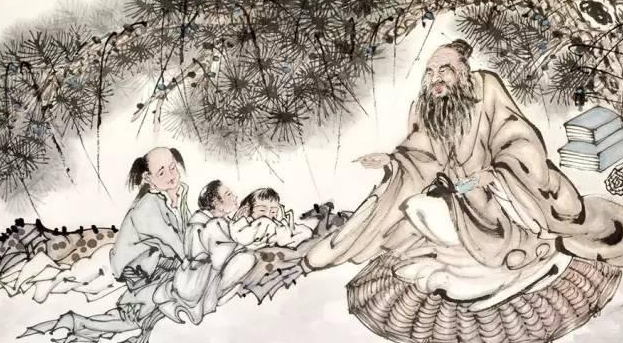"Is not that saying illustrated by this?" Ch'an K'ang asked Po-yu, saying: "Have you heard any lessons from your father different from what we have all heard?"
“其斯之謂與?”陳亢問于伯魚曰:“子亦有異聞乎?”
Po-yu replied: "No. He was standing alone once, when I passed below the hall with hasty steps, and said to him, 'Have you learned the Odes?' On my replying 'Not yet,' he added,
對曰:“未也。嘗獨立,鯉趨而過庭,曰:‘學《詩》乎?’對曰:‘未也。’
'If you do not learn the Odes, you will not be fit to converse with.' I retired and studied the Odes."
‘不學《詩》,無以言。’鯉退而學《詩》。”
Another day, he was in the same way standing alone, when I passed by below the hall with hasty steps, and said to me, 'Have you learned the rules of Propriety?'
他日,又獨立,鯉趨而過庭,曰:‘學《禮》乎?’
On my replying 'Not yet,' he added, 'If you do not learn the rules of Propriety, your character cannot be established.' I then retired, and learned the rules of Propriety.
對曰:‘未也。’‘不學《禮》,無以立。’鯉退而學《禮》。

I have heard only these two things from him. Ch'ang K'ang retired, and, quite delighted, said, "I asked one thing, and I have got three things,
聞斯二者。陳亢退而喜曰:“問一得三,
I have heard about the Odes, I have heard about the rules of Propriety, I have also heard that the superior man maintains a distant reserve towards his son."
聞《詩》,聞《禮》,又聞君子之遠其子也。”
The wife of the prince of a state is called by him Fu Zan, she calls herself Hsiao T'ung.
邦君之妻,君稱之曰夫人,夫人自稱曰小童。
The people of the state call her Chun Fu Zan, and, to the people of other states, they call her K'wa Hsiao Chun.
邦人稱之曰君夫人,稱諸異邦曰寡小君,異邦人稱之亦曰君夫人。













